Buying vs Leasing Solar Panels: Pros, Cons & Verdict
-
Codee Chessher
- Last updated:
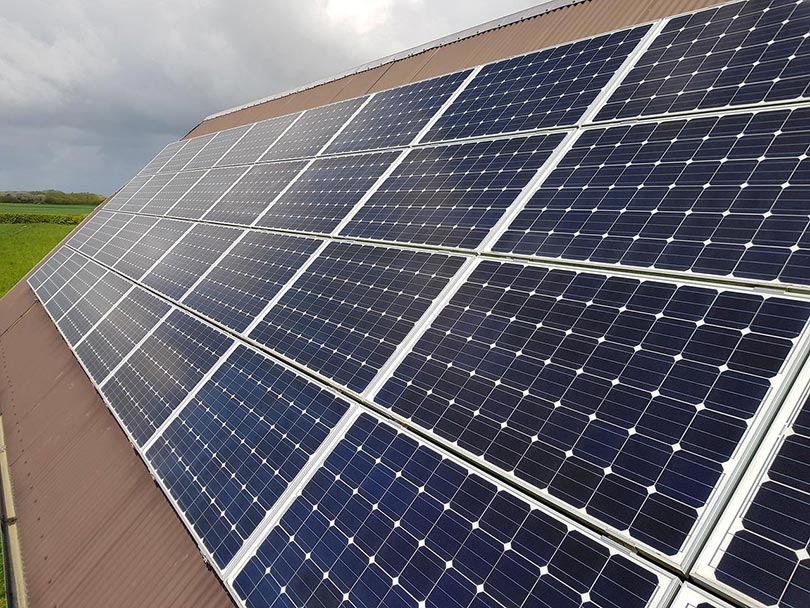
Solar panels are becoming extremely popular as homeowners realize how much they can save on power. There are two ways people pay for solar panels: buying them outright or leasing them on a monthly basis. Neither is better than the other, and which one you choose depends on how much you’re willing to shell out for a system. Let’s check out whether buying or leasing solar panels is the right choice for your home.

Overview of Leasing Solar Panels
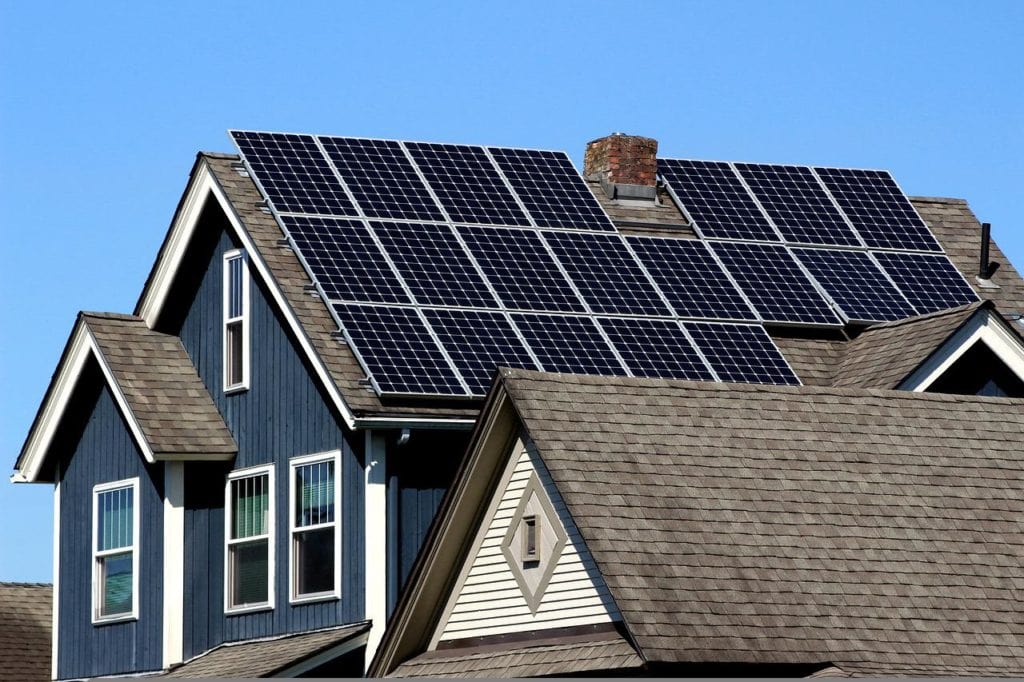
Leasing solar panels is a great way to save energy without breaking the bank upfront. You generally pay a monthly fee to a third party who provides you with the panels and necessary equipment. In many cases, they’ll have a solar technician hook everything up, but that may cost an additional fee upfront.
If you ever decide that you’re done with your panels and don’t want them anymore, you can usually terminate your contract and return the panels to the third party you leased them from. Depending on the fine print, you may have to pay yet another fee to terminate the contract early. If you own your home and might want to sell it later, a solar lease complicates the process.
How Much Is a Solar Panel Lease?
Depending on how extensive the system is, you’re looking at between $50–$250 per month for an average solar panel lease. The great part about this is that there’s usually little to no money down required for a lease
Leasing Responsibilities
When you lease solar panels, you’re not responsible for maintaining the panels. Granted, there’s little maintenance to be done, but if something happens, the owner of the panels is financially responsible. If the panels stop working for some reason, you simply notify the owner of the problem.
Generally, they’ll pay to have the panels fixed or replaced, assuming you didn’t damage the panels yourself. In that case, you might be on the hook for the full cost of the panels damaged.
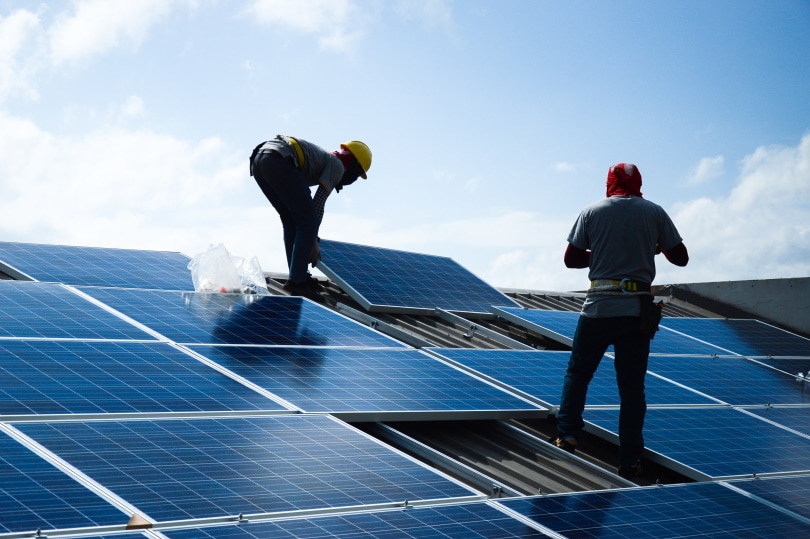
Selling a Home With a Solar Lease
If you have a solar lease and want to sell your home, things get tricky. Sometimes you may be able to transfer the contract to the buyer, but that’s not always the case. In those scenarios, you’ll have to pay an early termination fee and return the panels to the owner. Unfortunately, you’ll lose out on the value the panels lent your home.
If you opt to keep your solar system, you can pay to have it moved to your new home. The house you’re selling won’t be worth as much, but you’ll continue to enjoy savings on your power bill when you move.
- Cheaper upfront
- Owner is responsible for maintenance and upkeep
- You don’t own the panels
- Lease eats into your solar profits
- Typically not eligible for tax incentives

Overview of Buying Solar Panels
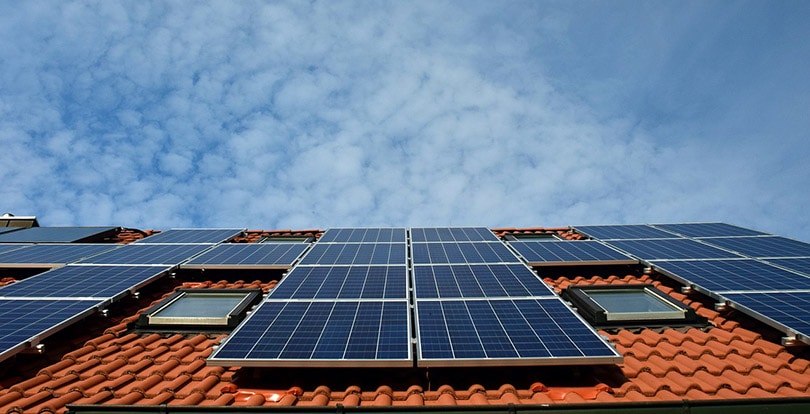
Buying your own solar panels is a great way to save on your monthly electricity bill and maybe even make you a little extra money. If you generate more than you use, some areas send checks to pay for whatever excess is produced. Over time, your system will pay for itself and then some.
Buying a solar system can be as easy as forking over cash or as complicated as signing up for a home equity or solar loan. We’d recommend taking advantage of all the tax incentives you can, depending on what state you live in. At this time, there’s a very generous federal tax incentive for homeowners to buy a solar system.
Buying your solar panels means you own them outright and can move or take them down whenever you want or have them moved to another home. Moving a solar system is expensive but worth it if you’re determined to sell your current home down the road.
Cost of Buying Solar Panels
Your average solar panel setup for a residential home costs between $15,000–$20,000, including installation. Paying this figure outright isn’t possible for everyone, in which case there are solar loans available. Most notably, the federal solar tax incentive will pay up to 26% of the cost of a new solar system if you’re buying it outright.
If your home has equity, you may be able to borrow against it to cover a solar panel system. Keep in mind that in these latter two scenarios, you may accrue interest that makes the final total substantially higher than the initial estimate.
Solar Panel Maintenance
When you buy a solar panel system, you’re responsible for it. Although the panels don’t usually require much maintenance, you’ll have to regularly clean them and inspect for loose or broken connections. If something breaks or goes wrong, you have to pay to have it fixed. Unlike a lease, you’re responsible for everything.
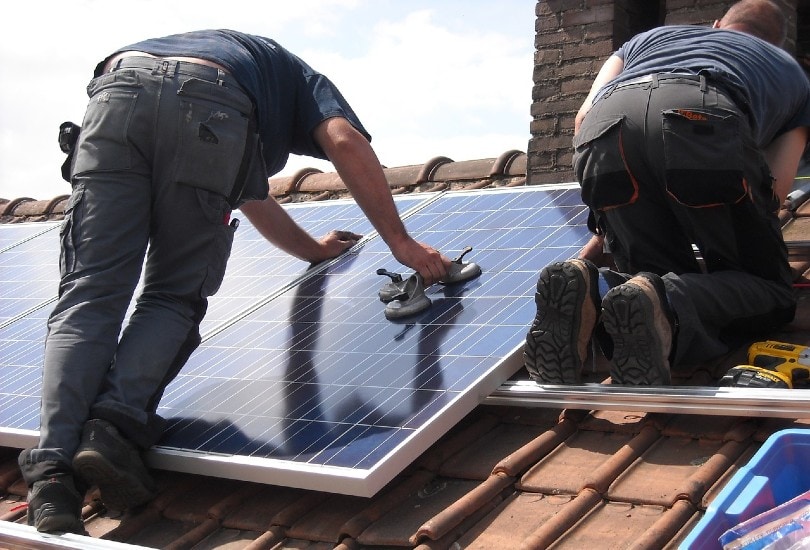
Solar Loans
Banks, credit unions, and solar installers all provide solar loans. There are two main types: unsecured and secured. With a secured loan, your home or down payment acts as collateral for the solar system.
For an unsecured loan, you have more flexibility, and nothing acts as collateral. Unsecured loans are harder to get because they usually require good credit, while secured loans are usually possible for anyone that owns their home or puts up a big enough deposit.
- No recurring cost
- Most optimal energy savings over time
- Payment plans may be available
- Tax incentives may be available
- Increases home value
- Higher upfront cost than leasing
- Responsible for maintenance and upkeep of the panels

Which Is Right for Me?
Ultimately, choosing whether to lease or buy a solar panel system for your home is a personal decision. For some people, buying might offer more peace of mind, while other people might just hate leases. On the other hand, some people don’t want to pay interest on a loan or don’t have the money to buy a system outright.
- You want to enjoy long-term energy savings
- You’re not interested in a monthly lease
- You plan to sell your home later on (with or without the solar system)
- You want to take advantage of federal or state tax incentives for solar power
- You don’t mind paying a monthly fee
- You don’t plan on selling your home later (or don’t mind breaking the contract)
- You don’t have the cash to buy a system upfront
- You don’t want to pay interest on a solar loan

Conclusion
Solar panels are an excellent way to supplement your energy usage and save on electricity, whether you lease or buy them. Leases are available if you don’t want to pay the large upfront cost of a system, or you can choose to take a loan or pay for the system in cash. No matter your situation, there’s an option for you to take advantage of solar power in your home.
Featured Image Credit: michaelyeoman, Pixabay
Contents
